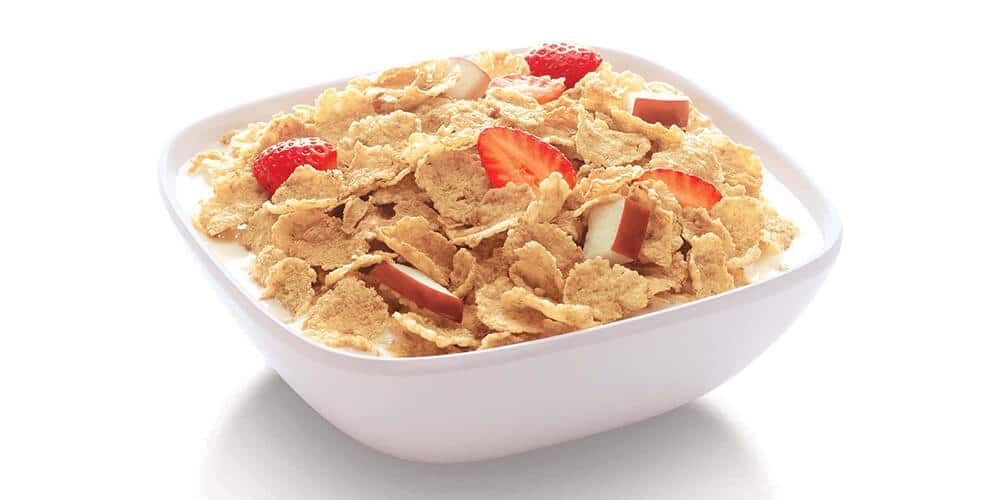
Benefits of Cereal
Cereal is nutritious, convenient and tastes great. Why is it a popular breakfast choice across the world?
Cereal is one of the most popular breakfast food in many countries. It is nutritious because it provides several key nutrients for relatively few calories. Cereal, including pre-sweetened cereal, supplies B vitamins, vitamin C and minerals like iron, calcium and zinc that are essential for good health. Despite its many assets, breakfast cereal is sometimes misunderstood. Let’s see how well you know cereal.
Myth 1: Breakfast cereal is heavily processed.
Fact: Making breakfast cereal is a simple process that starts with wholesome grains like wheat, rice, corn, barley and oats. For example, sun-ripened golden corn is simply cooked, lightly flattened and then gently toasted to make them into ready-to-eat cereals in just a few steps. Ready-to-eat cereal helps you to start your day with energy and key nutrients that you would otherwise miss if you skip or skimp breakfast…
Myth 2: Breakfast cereal eaters have been found to heave higher BMI (Body Mass Index).
Fact: Regular breakfast cereal eaters have been found to have lower BMI. Research suggests that ready-to-eat cereal consumers were less likely to be overweight/obese or have abdominal obesity as compared to other breakfast consumers. Eating cereal as part of a nutritious breakfast and an overall healthy lifestyle may help promote healthy weight in adults and kids.
Myth 3: Breakfast cereals are “less nutritious” than other breakfast choices.
Fact: Cereal ranks as one of the most popular breakfast options available. Research reviews have shown that regular breakfast cereal eaters have lower intake of fat and cholesterol, enhanced micronutrient intake, higher milk intake, lower serum cholesterol concentrations and overall improved nutritional status. Ready-to-eat cereals are made from grains that are typically low in fat, naturally cholesterol free and provide protein and fibre. They are also fortified with key vitamins and minerals essential for good health. Ready-to-eat cereals offer great variety along with convenience making them a great way to start the day!
Myth 4: Most cereals are “high” in carbohydrates and that is not good for health.
Fact: Food guides and health authorities around the world recommend whole grains, fibre, fruits and vegetables in particular, as an important foundation for a healthy diet. Carbohydrates breakdown in the body to provide glucose which is a preferred fuel for the brain and body. Carbohydrates or carbs provide the much needed energy to the body when consumed for breakfast after an overnight fast of 10-12 hours. Indian diets are cereal based and 60-70% of the calories are provided from carbohydrates.
Did you know fibre is a type of carbohydrate?
Fibre is a complex carbohydrate that offers many health benefits. Research studies have shown that majority of people don’t get enough fibre and hence are unable to meet their daily fibre requirements. Many of the leading breakfast cereal available in the market are high in fibre or at least a source of fibre. It is important to see the packaging information for the same.
Keeping you up-to-date on all things health and nutrition

Cereal is nutritious, convenient and tastes great. Why is it a popular breakfast choice across the world?
Mars Completes Acquisition of Kellanova. Read More